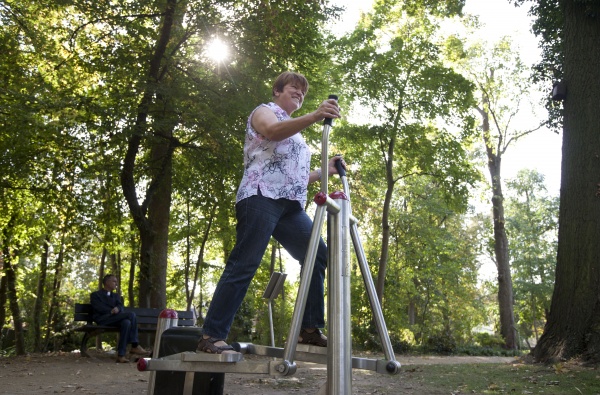About the accessibility and reachability of playgrounds
Imagine for just a moment the most beautiful playground in the world, but nobody can reach it! The accessibility standard described in DIN 18034...


YOUR FORUM FOR PLAY, SPORTS UND LEISURE AREAS

"Sports clubs must become the hotspots of prevention", as the Hamburger Abendblatt newspaper quoted sociologist Prof. Dr Hans-Jürgen Schulke at the end of March 2020. In the following essay, the former director of the Hamburg Sports Department explains what exactly he meant. The article was first published in the blog quergedacht (transverse thinking) by Helmut Digel and was updated in September 2020.
The restrictions imposed by the Covid-19 pandemic have had a deep and sweeping impact on the world of sports, be it professional sports, major events, club and school sports, exercise kindergartens, fitness studios, individual sports activities. Many forms and structures of sports were simply closed down. Olympia, the biggest festival in the world, will not be celebrated this year. It has never happened since the beginning of the bourgeois sports movement 200 years ago that socially organised sporting activities were completely interrupted in such a way- despite two world wars and profound political, technological and social upheavals. The value and development of sports as such must thus be redefined.
Professional sports is currently being discussed as a priority. It could well be that after the end of the crisis, driven by the media and players in the entertainment industry, sooner or later "business as usual" will be back again. It is just as conceivable that people will reflect on the crisis as they do on the experience of slowing down everyday life, on the solidarity they experienced. Also their limited finances. Instead, be going more to events in their neighbourhoods or neighbourhood clubs or accompanying children more often to their sports events. There is a chance to return to the idea of sports as a physical social interaction with more modesty, fairness, respect for players and spectators, attentiveness and health, self-organisation. More togetherness instead of noisy mass events. This should be lived and enlivened by associations, organisers and politicians.
Virologists and epidemiologists give different analyses and forecasts. The medical success of the short-term measures (number of deaths and seriously ill persons) is undisputed in comparison with other countries. The reasons will only be discernible at the end of the year in a complex overall view and by comparing sober figures. There was no plague-like threat to the entire population. Nevertheless, the question remains as to how a country and individuals protect themselves against a pandemic.
In the overall picture, it is also necessary to assess the overall economic, educational, sports, social and psychological collateral damage. Important aspects of pandemic control were initially ignored. To this extent, the primary medical care logic must be supplemented by a comprehensive prevention logic. This is where sport becomes particularly important. "Physical exercise in fresh air doesn’t cost anything, while at the same time it represents the best cure for illnesses". This is what Turnvater Jahn and the Enlightenment philosophers said already 200 years ago. The WHO has confirmed this on the basis of clear scientific findings and demands moderate and individually tailored weekly sporting activity from all fellow citizens under the motto "Be active". This idea should be given more emphasis besides waiting for a proven vaccine or medication. The recognition that a resilient lifestyle remains an essential factor in viral crises can also be seen in the unequal social distribution of severe Covid-19 infections.
Viral attacks are not necessarily associated with long term disease or fatal outcome. Dramatic progressions mainly affect the elderly or people with previous illnesses - or risky lifestyles. An infection is more likely to be overcome by a healthy, resistant person. Hence everyone has to ask themselves: Do I eat a healthy diet, do I take in enough vitamins, do I practise enough endurance sports to increase my immunity competence? Social contacts, which are good for everybody, which strengthen one's psyche, are also important factors - just as much as the personal handling of stress and job satisfaction or safe living. Accordingly, a prevention law has been in force for some years now, which promotes health sports activities and aims to create health-promoting living conditions for as many people as possible.
In this respect, sports can regain its strength or even gain in importance as a result of the crisis if it sees itself as a future-oriented field in which people strengthen physical and social immune competence, i.e. "resilience". This is currently lacking in the public debate: what traditions, structures, potentials, what strengths does sports have to be included in such crisis prevention concepts? And what attractive spaces, what stimulating equipment is required for this?
How can the 90,000 sports clubs in Germany participate in this? They should consistently present themselves as organisers of qualified health offers, according to the WHO as a "healthy place to live". With a membership of 27 m, club sport is the largest civil society organisation in Germany. It is traditionally and structurally the ideal partner for health and prevention. It is a special place where voluntary and self-organised physical activity in community with others is successful. There are sports clubs in almost every place, hundreds of thousands of trainers are skilled in health-related training, the number of offers for fitness, health and relaxation is enormous, 10 million club members from small children to the very elderly attend prevention-oriented offers, find stable social contacts. Hesitantly, politicians are beginning to recognise the importance of clubs in times of crisis. At least, the federal states and the federal government are providing uncomplicated funding for unemployed staff, rents and infrastructure. However, this is not yet a long-term prevention concept that also includes hygiene. Initially, the Federal Government's billion-euro package did not include anything for the urgent renovation of sports facilities.
What is still missing is a think tank for an overall concept for a resilient society that includes sports. Clubs are creative, agile, work-responsibly and solution-oriented. In the beginning, there were shopping services for the neighbourhood, ever more people are putting videos with exercises for the home or the garden on the Internet every day. This happens in thousands of clubs in the city and in the country. In small groups, people cycle, hike and jog always in compliance with the specified minimum distance. Earlier in the crisis, a disinfected and clearly divided gym or gym room could have been used by partners at the specified minimum distance instead of closing down everything - including playgrounds. The overall restrictions have clearly ignored the sense of responsibility and strength for self-organisation of the civil society.
In future, associations should strengthen their cooperation with schools and kindergartens in the sense of health-promoting networks, and target vulnerable groups. Health insurance companies, doctors, sports and health authorities, the health industry and educators would be called upon to promote the health aspects of sports more strongly at local level, to support the path towards a socially solidary and physically resilient society in cooperative networks. This would help to promote stable health and save the health system billions. The daily sports lesson could hence be one important goal. More physical activity units should be introduced in kindergartens than in the past and cooperation between schools/clubs should be strengthened, company and pensioner sports should be expanded. Clubs as hotspots of health prevention and motivation have tradition and future.
The current crisis is having a major impact on the whole of life, even though this trend is set to decline again. However, willingness and sensitivity to strengthen health will remain. It is important that sports organisations and politicians follow up with concrete measures to be taken up and readily conceptualised in the dialogue process. In club sports there is a distinct culture of participation, tolerance and support for the weaker members - assistance as a principle. One thinks of the clubs' contributions to refugee integration, to rehabilitation or disabled sports, for the very elderly. The World Games for Mentally Disabled to be held in Berlin in 2023 will be an example of a new understanding of sports events, will be a model of cheerfulness, community, health promotion and cultural enrichment, we have not seen in sports for a long time.
There is no way around new debates on health and sports if the country is to become more crisis-proof against pandemics in the long term. As politicians take up the idea of strengthening "health for all" - which includes social interaction - seriously, and as health policy does not only see health as a defence against disease, club sports will play a more important role in the future.
The current crisis poses a challenge for everyone to reflect on what they expect from sports for their health, where active participation is possible. For many people, clubs are a piece of home where they receive support in everyday life - they can form a "healthy place to live" in the comprehensive sense of the WHO. If these potentials are taken up by politics, sports organisations and the economy, this can lead to health-promoting, more humane sporting activities. There is no guarantee of this. It is up to people and social institutions to support this perspective. Also in and through professional sports.
Professional sports remain an attractive element of the modern entertainment industry. It will retain its importance. Watching, identifying with good performances and being inspired by them is nothing reprehensible. However, the exorbitant sums invested in professional sports should be put into perspective. One hope is that there will be more social responsibility by all those involved, starting with the players themselves, the clubs and players' agents who fuel this money cycle, so that professional sportsmen and women will not feel aloof, but will turn their attention more to the spectators, the young players, the social deficits that exist in every society. And that organisers will also design their event as a healthy place. If this becomes reality, and there are many approaches to it at present, it could be a positive impetus triggered by the Covid-19 crisis.
Current experiences with our vulnerability and endangerment could help us to more consciously integrate entertainment needs into our everyday lives, rather than seeing them as a place of hero worship and the centre of life. In reality, it is others who really deserve this status and have been suddenly discovered as "heroes of everyday life". There is a chance that in future the connection between professional spectator sports and children's and senior citizens' sport in clubs will grow again through mutual attentiveness. Incidentally, in sports, as in other voluntary organisations, we find thousands of traditional everyday heroes, such as the treasurer and chronicler, referee and trainer, equipment keeper, driver and not to forget the comforter.
The author:
Prof. Dr emer. Hans-Jürgen Schulke (born in 1945) was a university lecturer for sports sociology in Bremen and Hamburg. He is the author and publisher of numerous books, especially on club development, major sporting events, health sports and the digitalisation of sport. He has organised numerous international congresses. In addition, he is Secretary General of the German Gymnastics Festival, Director of the Hamburg Sports Office, responsible for the 2006 Football World Cup, Vice President of the DTB and the Federal Association for Prevention and Health.